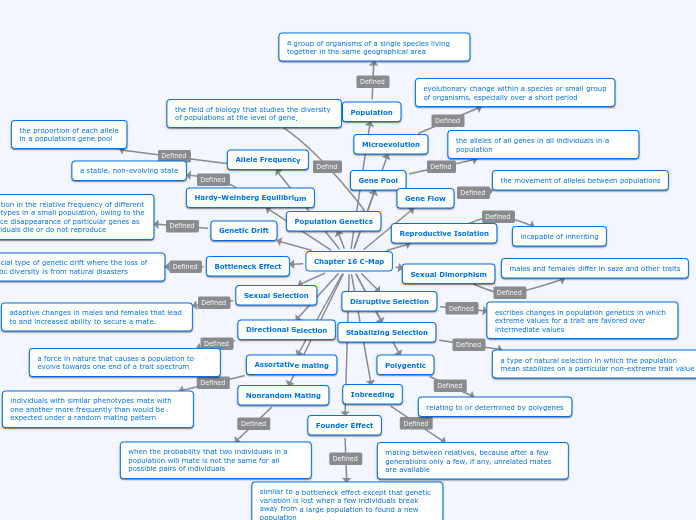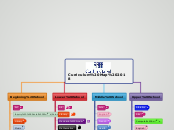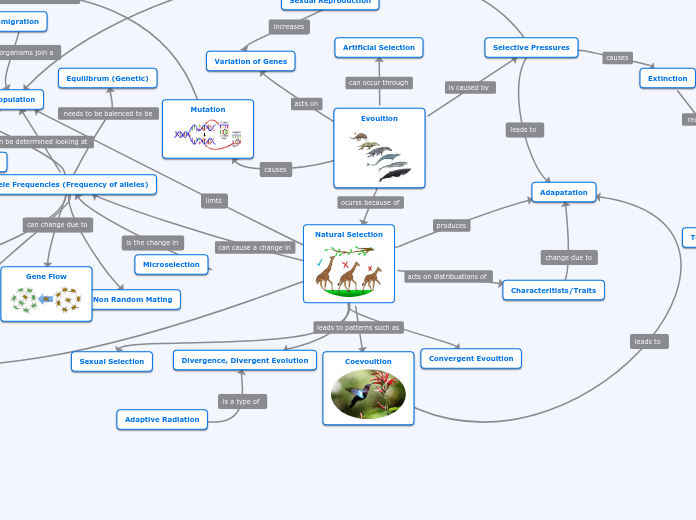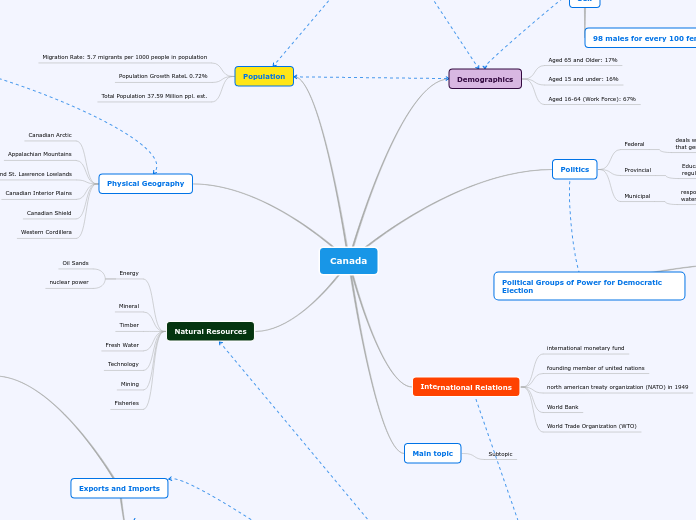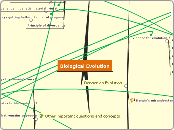door Justin Proffitt [STUDENT] 5 jaren geleden
568
Chapter 16 C-Map
The chapter delves into various mechanisms and concepts in population genetics and evolutionary biology. It explores directional selection, a natural force driving populations towards one end of a trait spectrum, and sexual selection, which involves changes in males and females to enhance mate acquisition.
